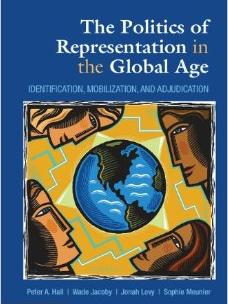#
C
Abstract
J
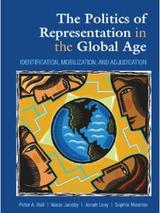
M
Abstract
Although the Member States of the European Union (EU) have long since relinquished their power to act as autonomous actors in international trade negotiations, they have now chosen to regain some of their lost trade sovereignty. Neither the European Court of Justice's (ECJ's) 1994 opinion, nor the 1997 reform of the trade policy process at Amsterdam delegated full negotiating authority to the Commission over the 'new trade issues' of services and intellectual property. Instead, Member States settled on a hybrid form of decision-making to enable ad hoc rather than structural delegation of competence. Was this a rollback of EU competence? If so, why has it occurred in the EU's oldest and most successfully integrated, policy sector? A shift in the perceived trade-off between economic interests and ideological bias on the part of key Member States can explain such a change. This article also explores the consequences for the future conduct of the EU's trade policy and its influence in shaping the world political economy, as well as for the evolving pattern of federal allocation of jurisdiction in the EU.
Abstract
Was the European Court of Justice a key actor in the "relaunching" of European integration in the 1980s? This article examines the crucial political role that was played by the Court with its Cassis de Dijon judgment in the rejuvenation EC harmonization policy and the development of the Single European Act. The authors challenge the dominant view that the Court's legal decisions in themselves create policy consequences, or that legal verdicts reflect the views of dominant member states, so as to create focal points around which a policy consensus emerges. They argue, instead, that the Cassis verdict acted as a catalyst, provoking a political response by the Commission, which attempted to capitalize on the verdict to create a "new approach to harmonization." This political entrepreneurship by the Commission triggered the mobilization of interest groups that lobbied their national governments for and against mutual recognition. Generalizing from the case, this article concludes that the Court performs three crucial roles in the EC policy-making process: opening political access to self-interested individuals, launching ideas into the policy-making arena, and provoking political responses through bold argumentation and unpopular verdicts.
Abstract
Abstract
Abstract
Abstract
Although culture is not at the heart of the policy agenda of the current French administration, it will likely be affected by the Sarkozy revolution. French culture seems to be in a state of crisis, as evidenced both by the end of its ‘rayonnement’ outside of France and by its diminutive focus on the producers instead of the consumers of cultural goods. The options available for reform can, paradoxically given France’s history of policy opposition to American culture, be inspired by what is done in the United States, as is suggested by Fre´de´ ric Martel’s 2006 book De la Culture en Ame´rique. A reform of French cultural policy would have implications both for foreign and for domestic policies.
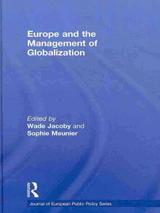
Abstract
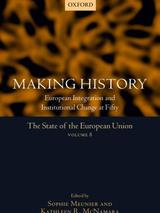
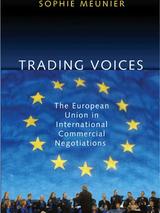
Abstract
The European Union, the world's foremost trader, is not an easy bargainer to deal with. Its twenty-five member states have relinquished most of their sovereignty in trade to the supranational level, and in international commercial negotiations, such as those conducted under the World Trade Organization, the EU speaks with a "single voice." This single voice has enabled the Brussels-based institution to impact the distributional outcomes of international trade negotiations and shape the global political economy.
Trading Voices is the most comprehensive book about the politics of trade policy in the EU and the role of the EU as a central actor in international commercial negotiations. Sophie Meunier explores how this pooling of trade policy-making and external representation affects the EU's bargaining power in international trade talks. Using institutionalist analysis, she argues that its complex institutional procedures and multiple masters have, more often than once, forced its trade partners to give in to an EU speaking with a single voice.
Through analysis of four transatlantic commercial negotiations over agriculture, public procurement, and civil aviation, Trading Voices explores the politics of international trade bargaining. It also addresses the salient political question of whether negotiating efficiency comes at the expense of democratic legitimacy. Finally, this book looks at how the EU, with its recent enlargement and proposed Constitution, might become an even more formidable rival to the United States in shaping globalization.
Abstract
Resistance to change seems to be a deeply ingrained trait of French national character, and therefore traditional political accounts of France emphasize historical continuity. Yet, France has changed considerably in the past two decades, whether in economic, social, or political terms. This article reviews Changing France: The Politics That Markets Make and, beyond this book, asks how France has and has not been transformed. The central argument is that this change has taken place for the most part in the shadows instead of being publicized and debated. This has led to an overwhelming feeling of malaise in society and to a crisis of political representation.
Abstract
decade, advanced economies worldwide have tightened their national investment screening
mechanisms (ISMs) for foreign direct investment (FDI). In March 2019, the European Union
(EU) adopted its first common FDI screening framework. Based on extensive interviews with
high-level EU and country officials involved in the negotiation process, and using a unique
measure of national support for the EU-wide ISM created through the first-ever elite survey on
this subject matter, we find that countries with higher technological levels were more supportive
of FDI screening due to concerns over unreciprocated technological transfer. We also find
sector-dependent effects of Chinese FDI on country-level support for FDI screening: Countries
with high levels of Chinese FDI in strategic sectors are more likely to support the EU ISM, while
those with high levels of Chinese investment in low-tech sectors tend to oppose screening. Our
overall findings suggest that EU investment screening, and national-level screening in general,
might become more restrictive in the future, especially in light of the COVID-19 pandemic.

Abstract
The French Challenge deals with France's effort to adapt to globalization and its consequences for France's economy, cultural identity, domestic politics, and foreign relations. The authors begin by analyzing the structural transformation of the French economy, driven first by liberalization within the European Union and more recently by globalization. By examining a wide variety of possible measures of globalization and liberalization, the authors conclude that the French economy's adaptation has been far reaching and largely successful, even if French leaders prefer to downplay the extent of these changes in response to political pressures and public opinion. They call this adaptation "globalization by stealth."
The authors also examine the relationship between trade, culture, and identity and explain why globalization has rendered the three inseparable. They show how globalization is contributing to the restructuring of the traditional French political spectrum and blurring the traditional differences between left and right. Finally, they explore France's effort to tame globalization—maîtriser la mondialisation—and the possible consequences and lessons of the French stance for the rest of the world.
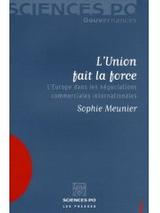
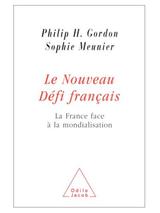
Abstract
S’adapter ou disparaître sous la domination américaine : la globalisation économique représente un défi pour toutes les sociétés. Il est toutefois particulièrement dramatique en France, du fait de notre tradition étatique, de notre souci de justice sociale, de notre attachement à notre langue, à notre culture, à notre identité, ainsi que de notre vieille rivalité avec les États-Unis.
Beaucoup de Français s’accordent à penser que la mondialisation comporte des bienfaits, mais ils sont nombreux à s’inquiéter de ses effets sur la répartition des revenus, l’emploi, la culture et la position de la France dans le monde. Qu’en est-il vraiment? La France ne s’adapte-t-elle pas plus nettement qu’on ne veut bien le dire ? Et l’idée de " mondialisation maîtrisée "? Peut-elle devenir réalité ou bien est-ce un mythe inventé par les hommes politiques afin de rassurer le public?
"Un travail impressionnant pour mettre au jour les racines historiques et intellectuelles de la résistance française à la globalisation et pour montrer comment la France réussit à s’adapter sans s’américaniser." Stanley Hoffmann.
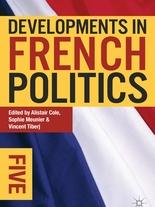
Abstract
Globalization and Americanization have often been intertwined and interchanged in the French political discourse. This article explores whether and how the election of Sarkozy, and then of Obama, are transforming this equation. The French obsession with globalization and Americanization was temporarily appeased at the time of the 2007 election, which enabled Sarkozy to come to power. Yet the French rapprochement with the US, at least on economic issues, is not so clear as has often been portrayed. However, the past couple of years have shown that globalization no longer equals Americanization. This should help mitigate the strains put on the Franco-American relationship by the world financial crisis.
Abstract
European policy-makers often speak of their efforts to ‘manage globalization’. We argue that the advocacy of managed globalization is more than a rhetorical device and indeed has been a primary driver of major European Union (EU) policies over the past 25 years. We sketch the outlines of the concept of managed globalization, raise broad questions about its extent, and describe five major mechanisms through which it has been pursued: (1) expanding policy scope; (2) exercising regulatory influence; (3) empowering international institutions; (4) enlarging the territorial sphere of EU influence; and (5) redistributing the costs of globalization. These mechanisms are neither entirely novel, nor are they necessarily effective, but they provide the contours of an approach to globalization that is neither ad hoc deregulation nor old-style economic protectionism.

